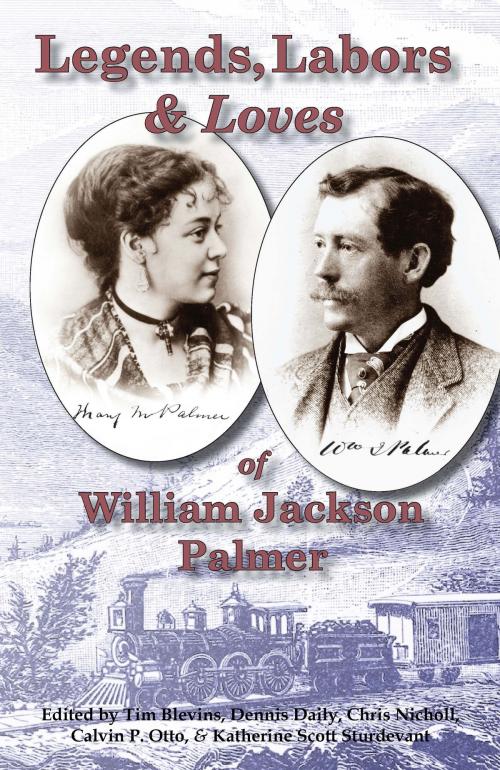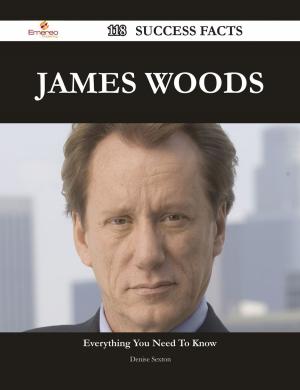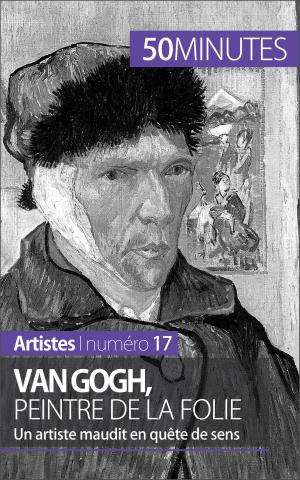Legends, Labors & Loves: William Jackson Palmer, 1836—1909
Nonfiction, History, Americas, United States, 19th Century, Biography & Memoir| Author: | Tim Blevins, Dennis Daily, Chris Nicholl, Calvin P. Otto, Katherine Scott Sturdevant | ISBN: | 9781567353310 |
| Publisher: | Pikes Peak Library District | Publication: | November 4, 2013 |
| Imprint: | Smashwords Edition | Language: | English |
| Author: | Tim Blevins, Dennis Daily, Chris Nicholl, Calvin P. Otto, Katherine Scott Sturdevant |
| ISBN: | 9781567353310 |
| Publisher: | Pikes Peak Library District |
| Publication: | November 4, 2013 |
| Imprint: | Smashwords Edition |
| Language: | English |
Everyone in Colorado Springs knows General William Jackson Palmer—ask any child and they’ll tell you “he’s the man on the horse!” Ask an adult and they may add that city streets, a park and a school are named after him. But who was he? Perhaps more knowledgeable citizens would tell you, “General Palmer was the founder of Colorado Springs,” or “He was the president of the Denver and Rio Grande Railroad,” and others would declare, “He was a decorated Union soldier.” “Who was he?,” or “who was she,” is frequently answered by recounting the individual’s accomplishments in life. Some people have long résumés listing their incredible successes. Others are well known for their failures. There are some residents of the Pikes Peak Region who know William Jackson Palmer as a husband to Queen Mellen Palmer; a father to Elsie, Dorothy and Marjory; and a friend to everyone in the community. Still others would tell you that he was an environmentalist, a pacifist, and an entrepreneur. The second annual Pikes Peak Regional History Symposium, William Jackson Palmer, 1836-1909: Legends, Labors & Loves, endeavored to answer the question, “Who was William Jackson Palmer?” The day-long symposium on June 4, 2005, compared the man of myth with his life’s undertakings, as well as with what is known about his personal relationships. More complex questions come about when reconciling Palmer as a Union army soldier and spy with his Quaker upbringing; reconciling the massive manpower required to build Palmer’s western railroad and mining empires with his reputation as man of benevolence; and reconciling Palmer’s love for Colorado Springs with his intercontinental romance with his wife Mary Lincoln Mellen “Queen” Palmer. This “Palmer Paradox” intrigued Chris Nicholl, historian in Special Collections at Pikes Peak Library District, who cochairs the Symposium Planning Committee with Calvin P. Otto. Chris and Cal assembled many research talents of the region to attempt to reveal this man of Glen Eyrie.
Everyone in Colorado Springs knows General William Jackson Palmer—ask any child and they’ll tell you “he’s the man on the horse!” Ask an adult and they may add that city streets, a park and a school are named after him. But who was he? Perhaps more knowledgeable citizens would tell you, “General Palmer was the founder of Colorado Springs,” or “He was the president of the Denver and Rio Grande Railroad,” and others would declare, “He was a decorated Union soldier.” “Who was he?,” or “who was she,” is frequently answered by recounting the individual’s accomplishments in life. Some people have long résumés listing their incredible successes. Others are well known for their failures. There are some residents of the Pikes Peak Region who know William Jackson Palmer as a husband to Queen Mellen Palmer; a father to Elsie, Dorothy and Marjory; and a friend to everyone in the community. Still others would tell you that he was an environmentalist, a pacifist, and an entrepreneur. The second annual Pikes Peak Regional History Symposium, William Jackson Palmer, 1836-1909: Legends, Labors & Loves, endeavored to answer the question, “Who was William Jackson Palmer?” The day-long symposium on June 4, 2005, compared the man of myth with his life’s undertakings, as well as with what is known about his personal relationships. More complex questions come about when reconciling Palmer as a Union army soldier and spy with his Quaker upbringing; reconciling the massive manpower required to build Palmer’s western railroad and mining empires with his reputation as man of benevolence; and reconciling Palmer’s love for Colorado Springs with his intercontinental romance with his wife Mary Lincoln Mellen “Queen” Palmer. This “Palmer Paradox” intrigued Chris Nicholl, historian in Special Collections at Pikes Peak Library District, who cochairs the Symposium Planning Committee with Calvin P. Otto. Chris and Cal assembled many research talents of the region to attempt to reveal this man of Glen Eyrie.















